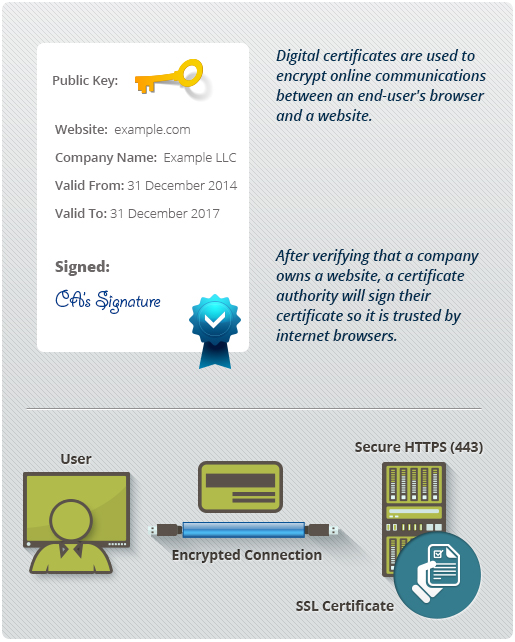Digital Certificates are a means by which consumers and businesses can utilise
the security applications of Public Key Infrastructure (PKI). PKI comprises
of the technology to enables secure e-commerce and Internet based communication.
The number of people and businesses online is continuing to increase. As access becomes faster and cheaper such people will spend even more time connected to the Internet for personal communication and business transactions.
The Internet is an open communications network that was not originally designed with security in mind. Criminals have found they can exploit its vulnerabilities for fraudulent gain. If the Internet is to succeed as a business and communications tool users must be able to communicate securely.
What does security provide?
Identification / Authentication:
The persons / entities with whom we are communicating are really who they
say they are.
Confidentiality:
The information within the message or transaction is kept confidential.
It may only be read and understood by the intended sender and receiver.
Integrity:
The information within the message or transaction is not tampered accidentally
or deliberately with en route without all parties involved being aware of the
tampering.
Non-Repudiation:
The sender cannot deny sending the message or transaction, and the receiver
cannot deny receiving it.
Access Control:
Access to the protected information is only realized by the intended person
or entity.
All the above security properties can be achieved and implemented through the
use of Public Key Infrastructure (in particular Digital Certificates).
